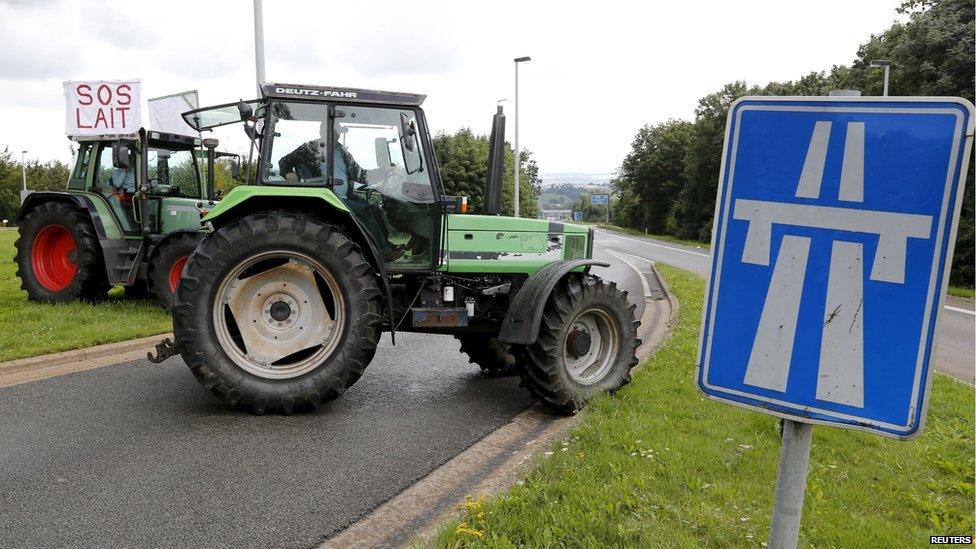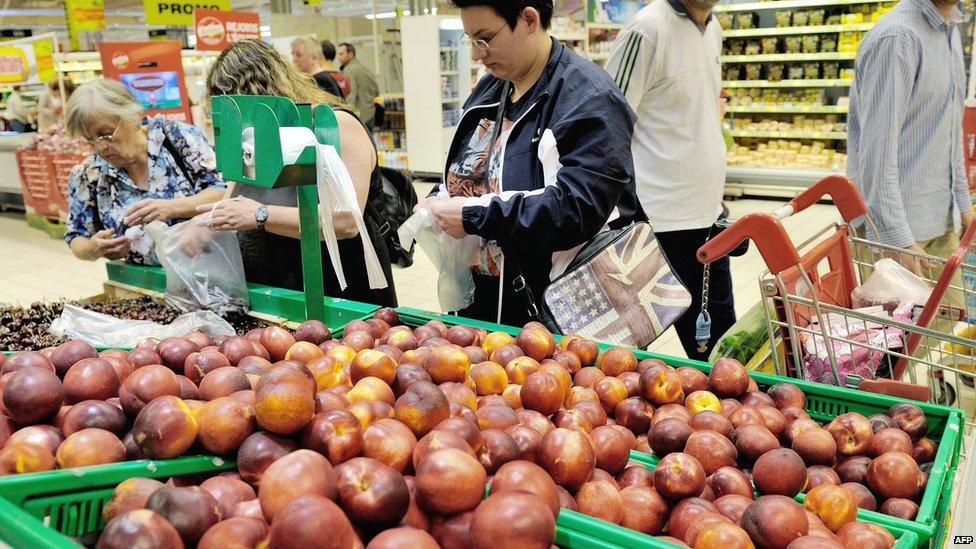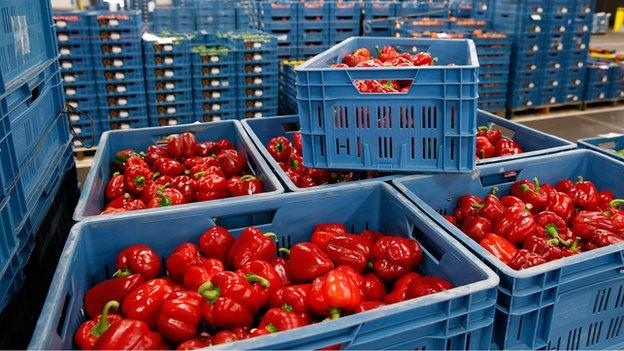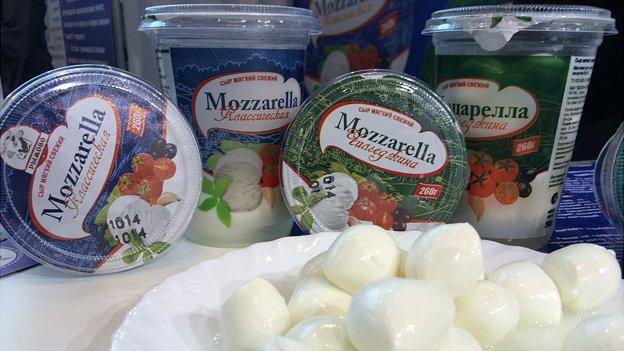EU extends farm aid amid Russian food import ban
- Published

Angry dairy farmers used their tractors to block roads in Belgium on Thursday
The EU says it will continue aid for exporters of dairy produce, fruit and vegetables into next year to ease the impact of a Russian ban on those goods.
The EU Commission says, external the "safety net" for Europe's dairy sector will remain in place until March 2016 and for fruit and vegetable growers until July 2016.
Russia has extended a year-old ban on most imports of EU food and drink until August 2016. Western sanctions are hurting Russia's economy.
The Ukraine crisis sparked the dispute.
Many European farmers are in financial difficulties because the Russian market is blocked and Chinese imports of European dairy produce have slackened.
There have been daily road blockades by French farmers - and on Thursday similar protests erupted in Belgium. They want higher prices for their produce, saying they are struggling to stay in business.
In 2013 Poland and Lithuania were the biggest European exporters of fruit and vegetables to Russia.

Growers of nectarines and peaches are among those hit hardest by the Russian ban
East-West tensions
The West has restricted credit for Russian state banks, defence firms and energy industries, and slapped visa bans and asset freezes on many top Russian officials because of Moscow's actions in Ukraine.
The sanctions were triggered by Russia's annexation of Crimea in March 2014, and were later ratcheted up, as Russia was accused of arming separatists in eastern Ukraine. Russia has denied helping the separatists with troops and heavy weapons.
"We need to continue to provide a safety net in order to give security to producers who continue to face difficulties in relation to the [Russian] ban," EU Agriculture Commissioner Phil Hogan said.
The EU support for fruit and vegetable growers has cost €155m (£110m; $170m) so far. It takes the form of withdrawing produce from the market - it is then distributed free in schools and hospitals, or used for compost or animal feed. Restricting the supply helps to prevent prices crashing.
In the dairy sector, the Commission is buying up butter and skimmed milk powder and paying farmers to store their produce.
- Published18 August 2014

- Published17 October 2014
